Insomnia is the most common disorder of the nervous system. It is characterized by the inability to sleep well. At night, different recovery processes take place in the body, and without them, our body would not be able to repair all the damages that occur throughout the day. Therefore, insomnia has associated risks such as cardiovascular disease, anxiety, among other.
Dr. Helena Rutllant answers few questions about insomnia and how to treat it.
- What is insomnia and how can we detect it?
The word insomnia means sleep disorder, but within this disorder there are a multitude of variants. We may find it difficult to fall asleep, to wake up during the night, to wake up early and all of them will be classified as insomnia.
Normally people suffering from insomnia will present different symptoms that can affect their daily life to a greater or lesser extent. An indicator that we suffer from insomnia can be getting up feeling tired; have daytime sleepiness; be more irritable, depressed or anxious; have difficulty concentrating, memorizing something or paying attention among others.
- Why does insomnia occur?
At some point in our lives we have all suffered or will suffer insomnia, therefore we would have to differentiate punctual insomnia (we have taken stimulants such as coffee, we have witnessed something shocking, we have dined copiously, etc.) that affects one night specifically, short-term (acute) insomnia that will last for a few days, but always less than four weeks and long-term (chronic) insomnia that will last more than four weeks.
It should also be noted if insomnia is the main problem or is associated with other diseases or medications.
We can find very different causes and the important thing is to find them because the treatment should not only be to treat the symptom. We do not solve the problem with giving a hypnotic or an anxiolytic, the approach to insomnia is to correct or at least try to correct the origin of the disorder.
At the moment one of the main causes of insomnia is stress (worries related to work, school, health, family… can keep the mind active during the night, making it difficult to fall asleep).
Diseases causing chronic pain, cancer, gastroesophageal reflux, heart failure, sleep apnea, restless legs syndrome, Alzheimer disease … among many others; some medications (antihypertensive, antidepressants, asthma drugs, caffeine painkillers, etc.).
Intercontinental travel; night work shifts (alter our circadian rhythm …);bad sleeping habits (irregular schedules, prolonged naps, use of screens just before bedtime, uncomfortable sleeping environment, etc.).
Anxiety and depression often manifest as sleep disorders and the non-control of this symptom worsens and / or aggravates the disease; take stimulants just before bedtime (caffeine, alcohol, nicotine, etc.) or eat too much at night …
It is clear that if we are able to find out the origin of insomnia, the benefit we will get from treating it will have more efficacy.
- Why is it so important to rest properly?
We must keep in mind that sleeping well is as important as a good diet. If a person was deprived of sleeping, he or she would die within a few days.
During sleep we go through several states (non-REM sleep and REM sleep).
In the non-REM sleep phase, the body repairs body tissues, recovers energy, etc.
In the opposite side, in the REM sleep phase, brain repair (neuro-reorganization) occurs and the relevant memories are consolidated and stored.
As insomnia becomes chronic, daytime functioning deteriorates, there is a decrease in intellectual performance with difficulties in concentration and memory.
Also one of the main functions is also to help regulate body temperature, functioning as a thermostat that will facilitate the correct execution of metabolic, hormonal processes, etc.
- What can we do to regulate the wake – sleep cycle?
Everyone has heard about circadian rhythms, which are those that happen rhythmically on a daily basis in behavioural or physiological processes, among them the best known is the Light-Dark Cycle or Vigil-Dream Cycle.
The ideal would be to send to our brain the unequivocal signals of what phase of the day we are in. It is important to have correct habits, regular schedules, etc. I would sum it up in several points:
- Maintain more or less fixed schedules when waking up and going to bed.
- Increase sun exposure during the day. Avoiding instead the intense artificial lights both at the first and at the last hour of the day.
- Avoid computer screens, tablets and even television an hour before bedtime.
- Avoid caffeine and alcohol.
- Have dinner at least 90 minutes before bedtime.
- Sleep in silence and in a dark room
- Avoid going to bed with negative emotions.
- Do natural ingredients really help?
Obviously yes. We must not forget that the most important thing is to try to be as physiological as possible. You have to get to the origin of the problem. Earlier in the article we mentioned that giving drugs is not treating insomnia, it is just treating a symptom. The important point here would be to find out what causes that insomnia and treat the problem from the very beginning.
It is widely known the effect of the Valeriana officinalis plant, acting as a sedative and is commonly prescribed to relieve insomnia, stress or anxiety.
Melissa officinalis or Melissa is an excellent tranquilizer that will also work for digestive disorders.
Passiflora incarnata is also widely used for sleep disorders, generalized anxiety disorders, etc.
Eschscholzia californica or California Poppy is a plant that has a beneficial effect on the quality of sleep. It acts basically in the first phase of non-REM sleep, that is, when we fall asleep, although its action will also effect on the phases of deep sleep. The advantage we have over synthetic drugs is that it will not generate dependence, therefore it is an interesting option in the treatment of insomnia.
If we found out that we can have a deficit in melatonin, adding it to treatment will benefit us from a faster and more effective improvement.
Melatonin is a hormone produced by the pineal gland or epiphysis that among the functions it has in our body, the best known is the regulation of the sleep-wake cycle. The start of melatonin secretion occurs around 9:00 p.m., its maximum point is from 00:00 a.m. – 4:00 a.m. and from 7:30 a.m. its secretion ceases, just when the sun rises and, when theoretically begins our work, family day, etc. .. (To be awake we do not need melatonin, but cortisol).
Finally, a curious fact, during sleep, even body posture can affect our brain.
If you want to know more, discover the Vitae Healthy Bar to manage stress and anxiety

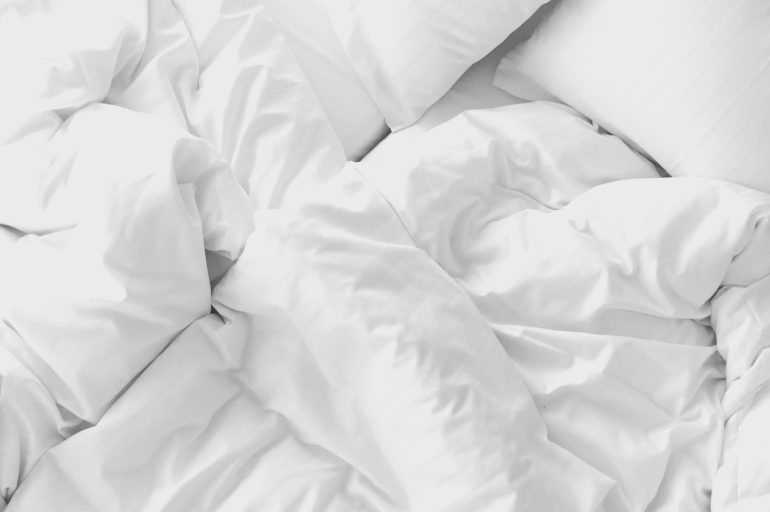
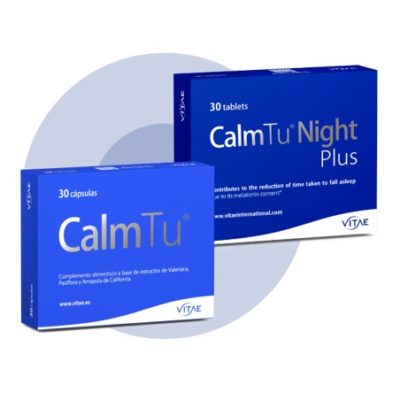
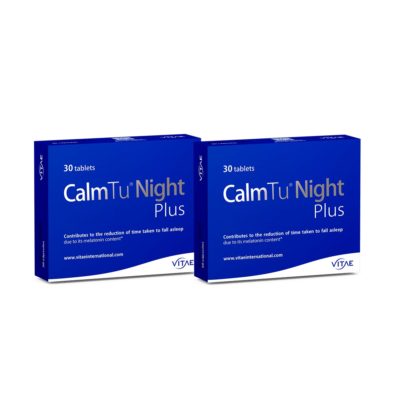
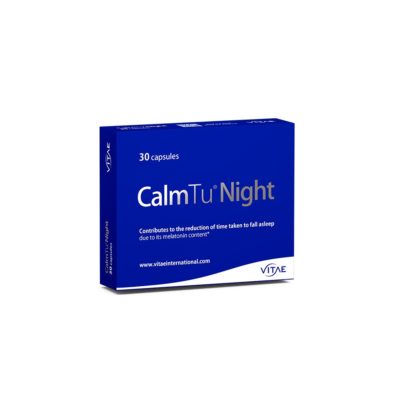
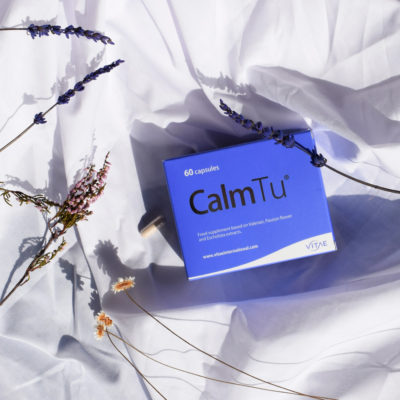



It has long been hypothesized that physical exercise, like swimming, can help with sleep disorders. One reason exercising can help you sleep better is it increases your body temperature, and when it drops after a workout, it signals to your body that it is time to sleep. Swimming is really considered the most effective since during this activity the whole body works.
But remember that it’s better to exercise 3-4 hours before bedtime. During this time, your nervous system and body will come to complete relaxation.